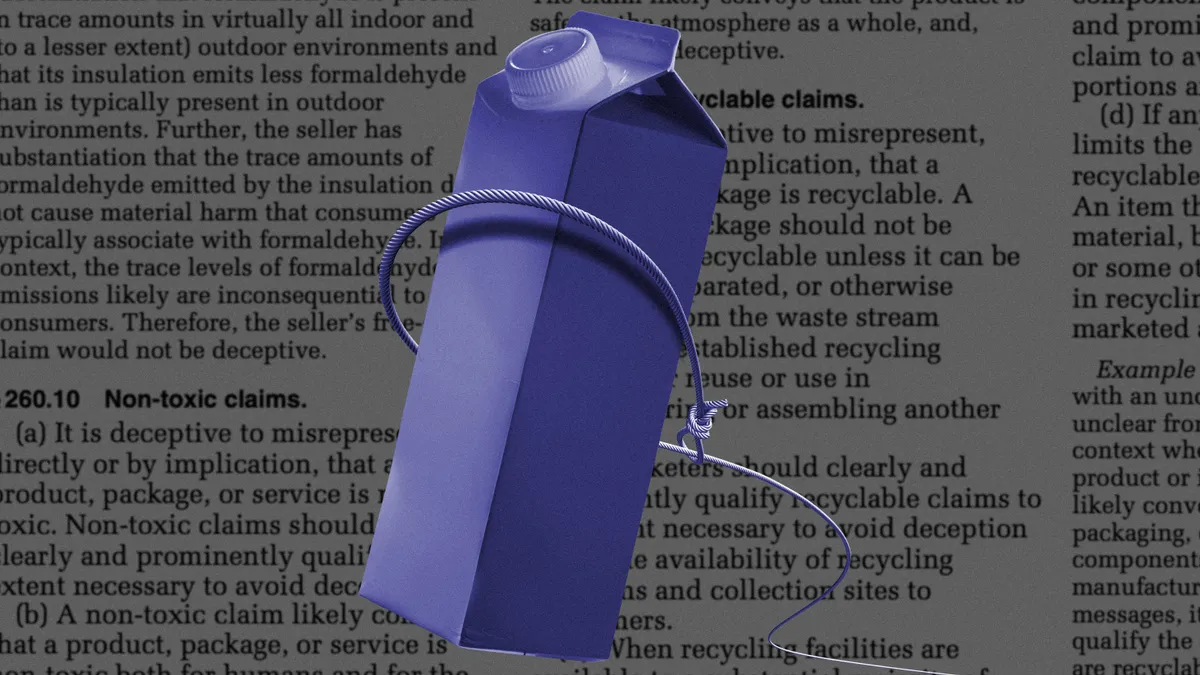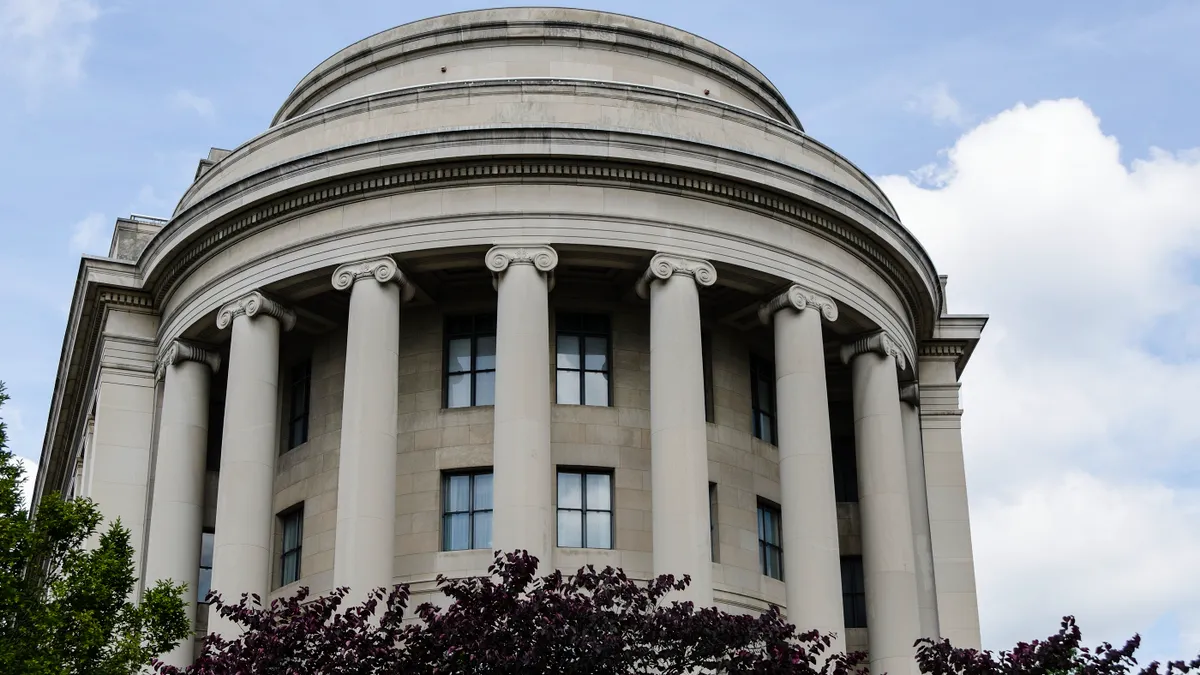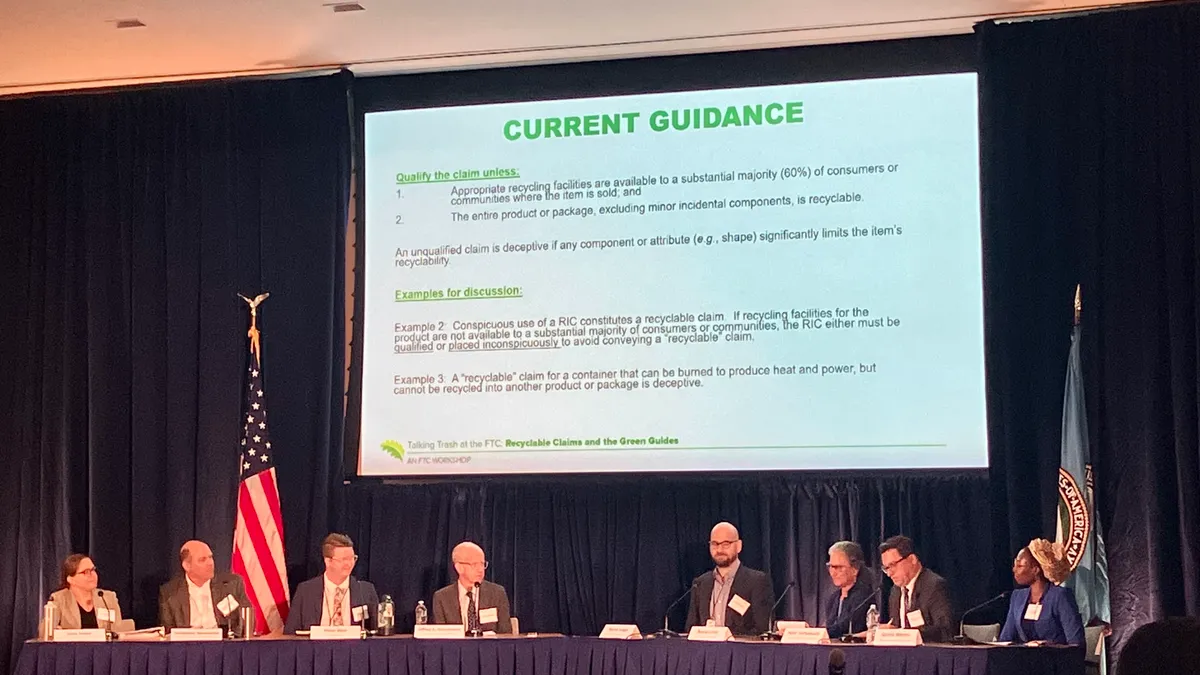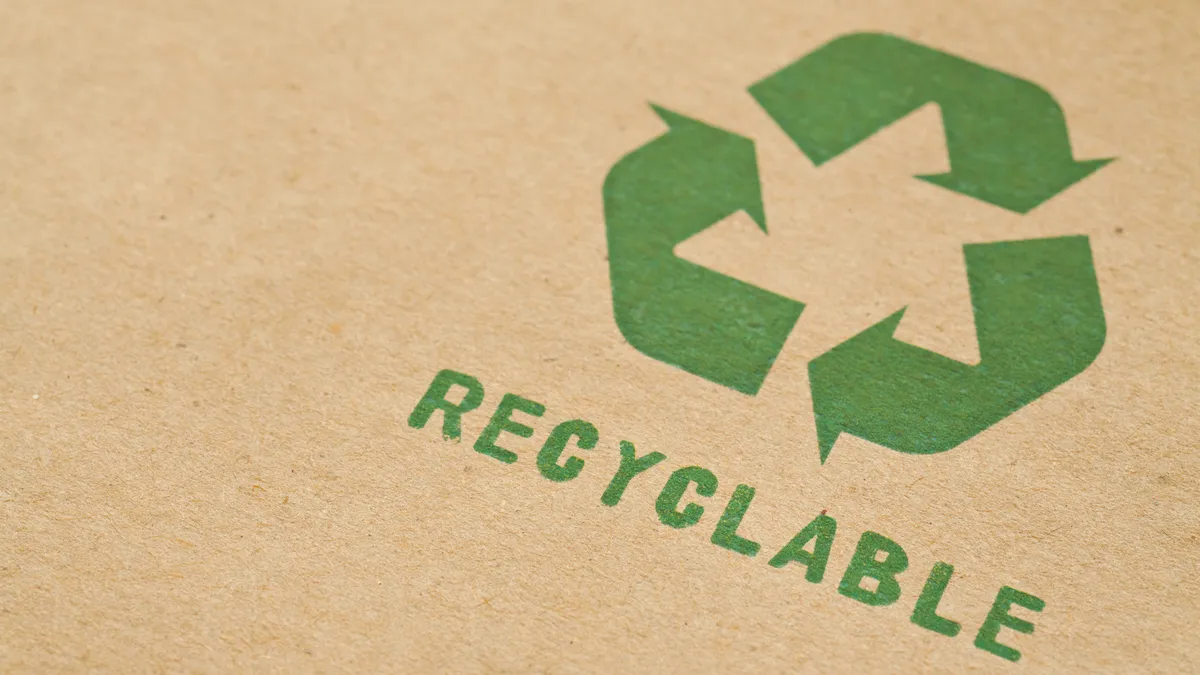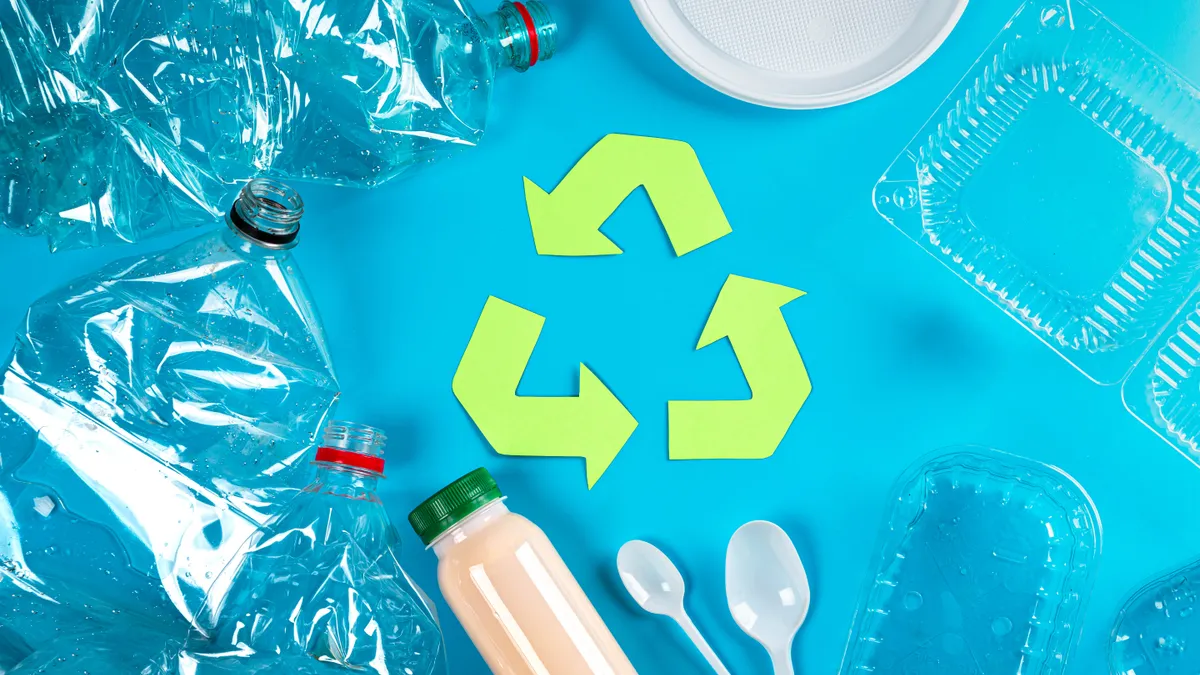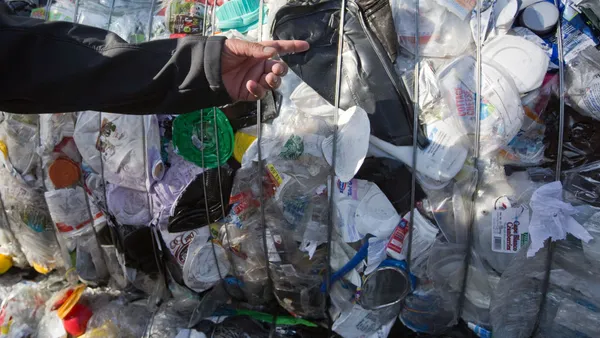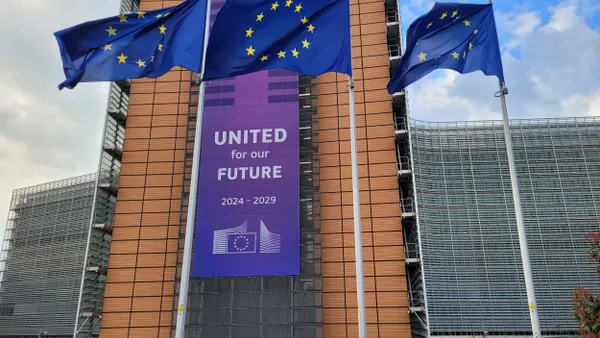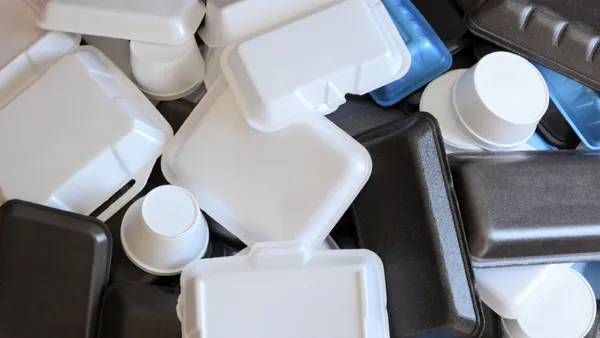The recent change in presidential administrations came and went without an update to the Green Guides, guidelines for environmental marketing claims promulgated by the Federal Trade Commission. An FTC spokesperson confirmed at the end of January there was nothing new to share regarding potential updates.
The Green Guides were first released in 1992, with a few revisions since. They were last updated in 2012. FTC first requested comment on potential new updates back in 2022, drawing thousands of responses from packaging, recycling and brand groups, as well as state attornies general and others. Many viewed an update as important, given the ongoing popularity of sustainability marketing — and greenwashing — as well as common labeling and mislabeling of products and packaging as recyclable, compostable or biodegradable, along with other end-of-life claims.
To those who observed the 2012 update, the lengthy timeline is familiar; that review was initiated in 2007. It’s unclear how the recent change in administrations might impact the process.
“It's hard to say how it might compare, Biden administration to Trump administration, where we really heard so little out of the Biden administration to begin with,” said Dan Felton, president and CEO of the Flexible Packaging Association.
While those updates remain at bay, industry leaders are watching state policy, which is poisted to have the greatest impact on upcoming labeling decisions.
Chief among them is California, whose SB 343 law, passed in 2021, will seek to crack down on which products can feature recycling labeling and use the chasing arrows symbol. Regulators are still preparing to implement it; CalRecycle is accepting comments until Feb. 18 as it works to finalize a material characterization study report for SB 343, following a public meeting last week to present the revised preliminary findings.
The agency is expected to publish the final report by early April, as it has a 60-day window following the Feb. 3 meeting. Once that report is finalized, there will be an 18-month countdown to when the law’s recyclability criteria will apply to products and packaging.
There was an uptick in state labeling proposals last year and more are expected this year, Felton noted, adding that FPA will likely continue to oppose state proposals because they create a patchwork of regulations for producers to navigate. “Better yet to wait for either what FTC and/or Congress might say about this issue, rather than trying to address a whole bunch of different state proposals,” said Felton, who was also involved in these issues as the former executive director of Ameripen, a post he left late last year.
Though it may be a long shot, “I think there's still a little bit of hope that maybe something can happen through Congress, in the absence of FTC Green Guides moving forward, and maybe still get something done before California is officially in effect,” Felton noted.
States are also zeroing in on compostability labeling. Multiple states require such claims to be certified by an independent third party, with more states expected to adopt such measures by the end of this year, said Alex Truelove, legislation and advocacy manager at BPI.
Regarding labeling legislation, “I think once things probably settle down with the new administration, and maybe there's willingness to focus on priorities that aren't sort of the immediate priorities in Congress, then I think there's definitely opportunity,” Truelove said. “I suspect there's probably already been conversations. I think there's bipartisan interest because, thankfully, on-product labeling hasn't been that politicized. And I think it's a lot of big industry groups are behind these bills.”
Ameripen last year previewed a not-yet-introduced labeling bill it was working on, dubbed the PACK Act, that would empower the U.S. EPA to administer a federal legal framework and standards for claims around recycling, compostability and reuse used with consumer product packaging. Rob Keith, membership and policy director at Ameripen, recently said that the PACK Act was set up to not be dependent on the Green Guides revisions.
“The comments that we submitted in the Green Guides revisions were sort of being developed on a parallel track to the PACK Act,” Keith said. That said, a Green Guides update would still be “a welcome development.” Keith said it remains to be determined whether Ameripen will seek to have the bill introduced in 2025 but it’s a “very active discussion.”








